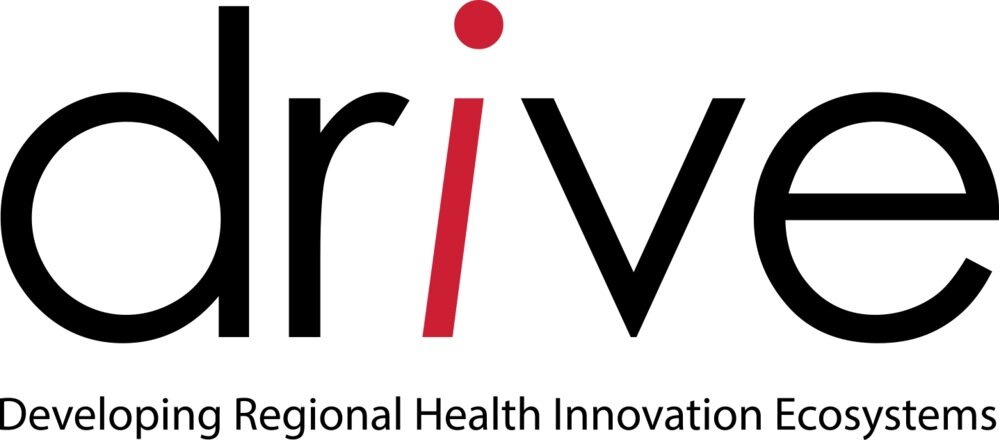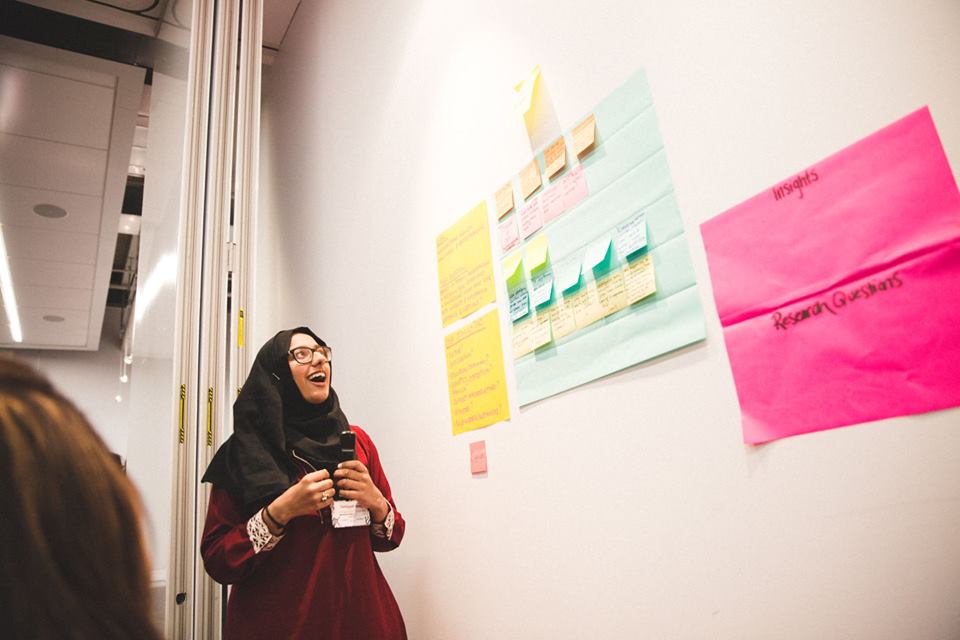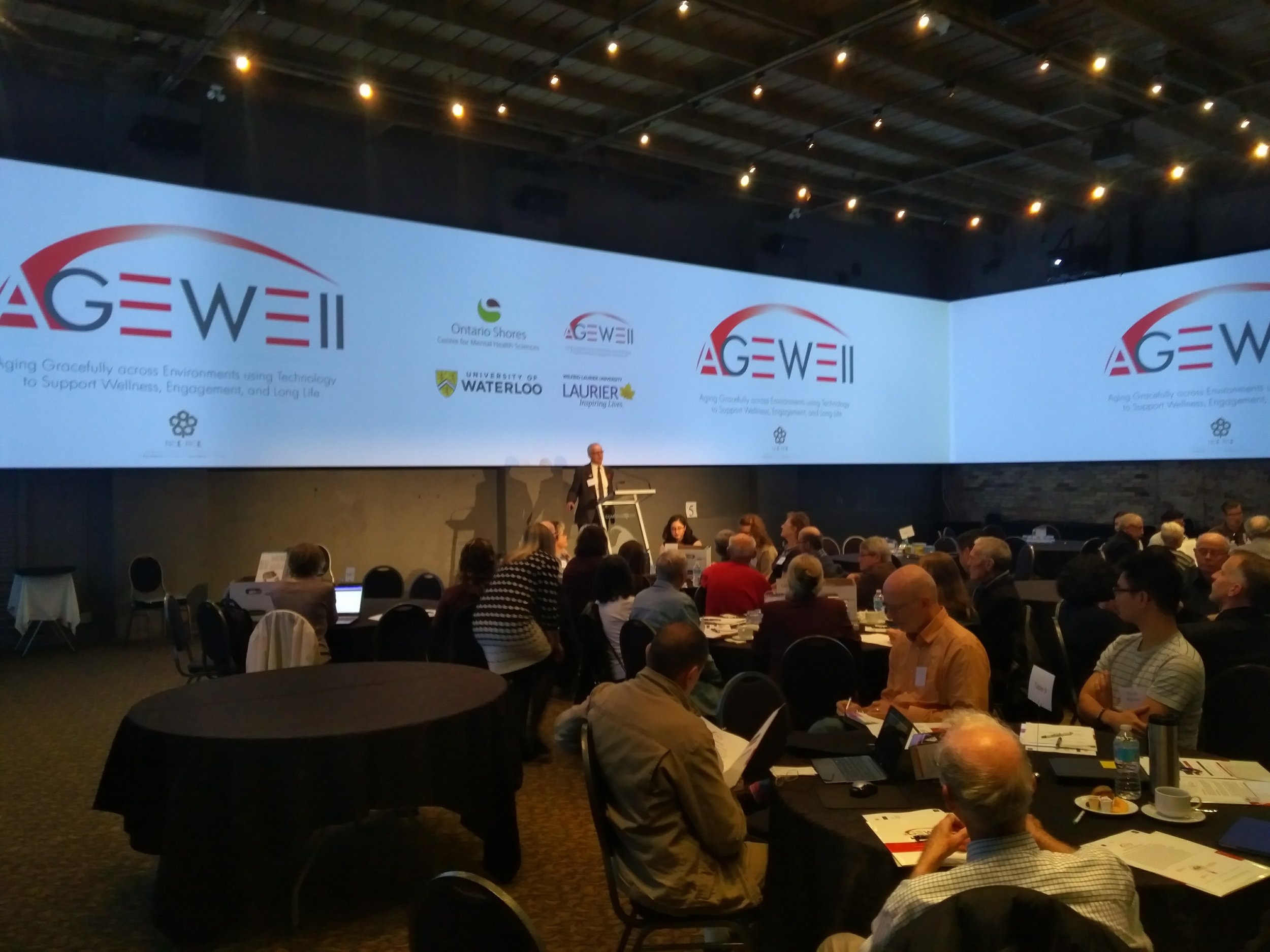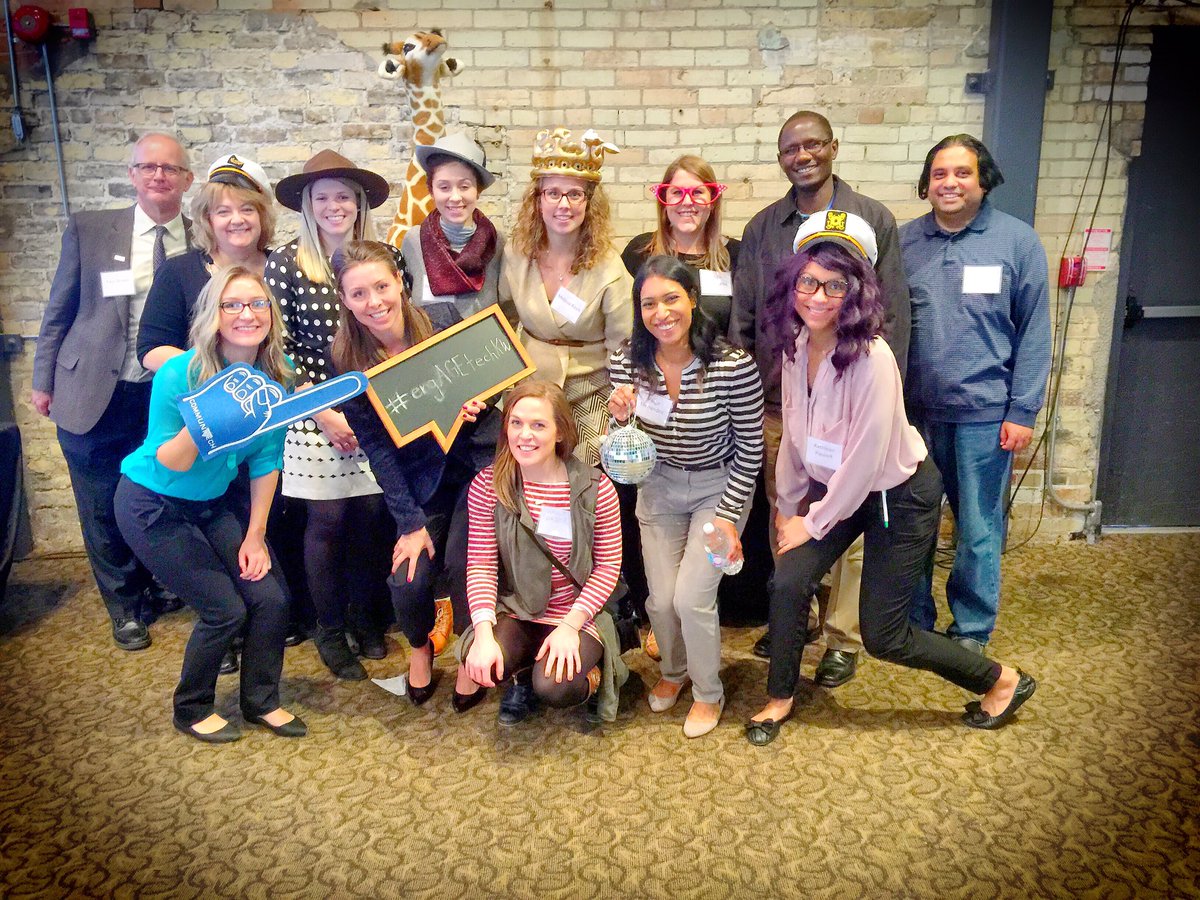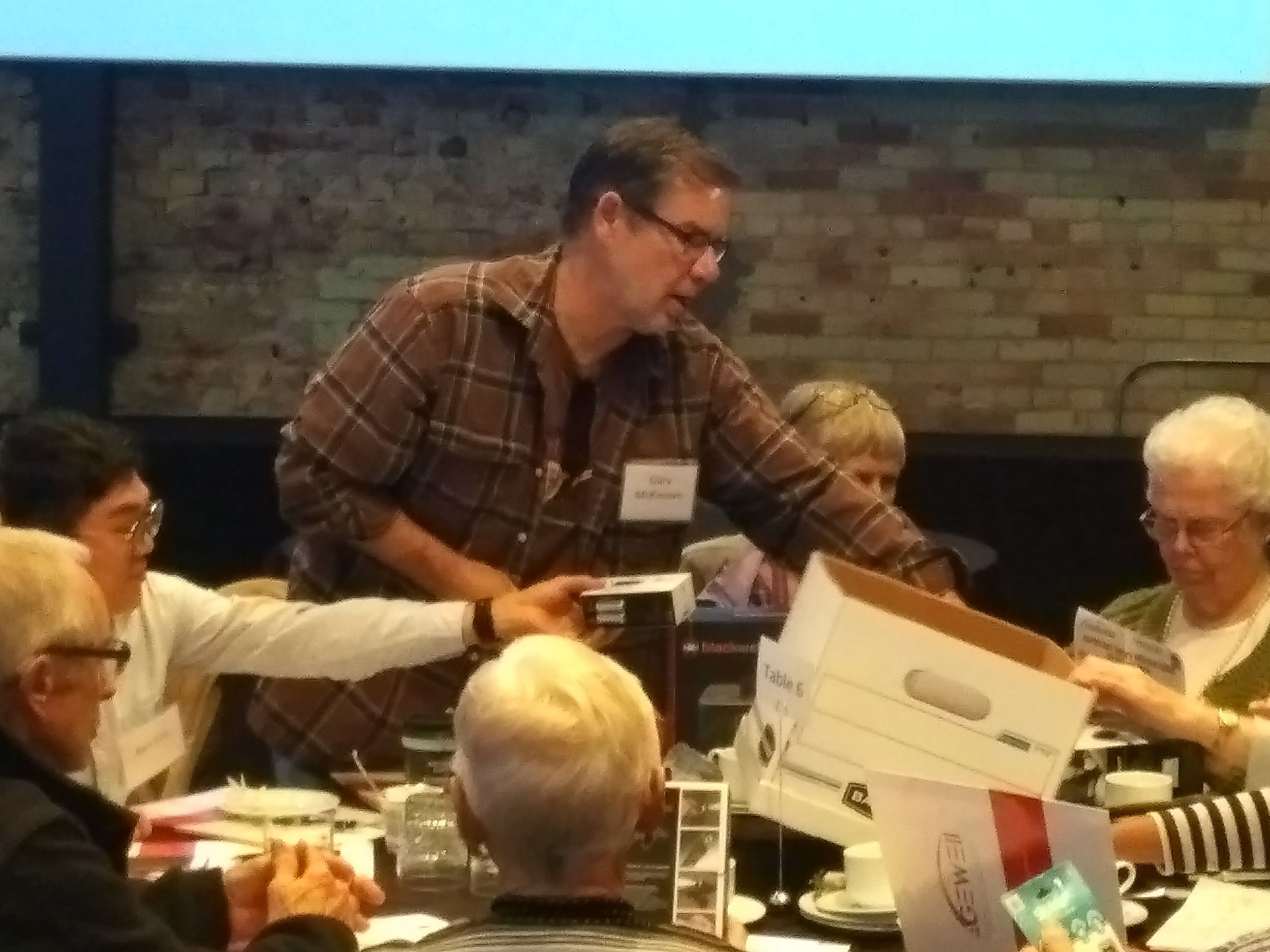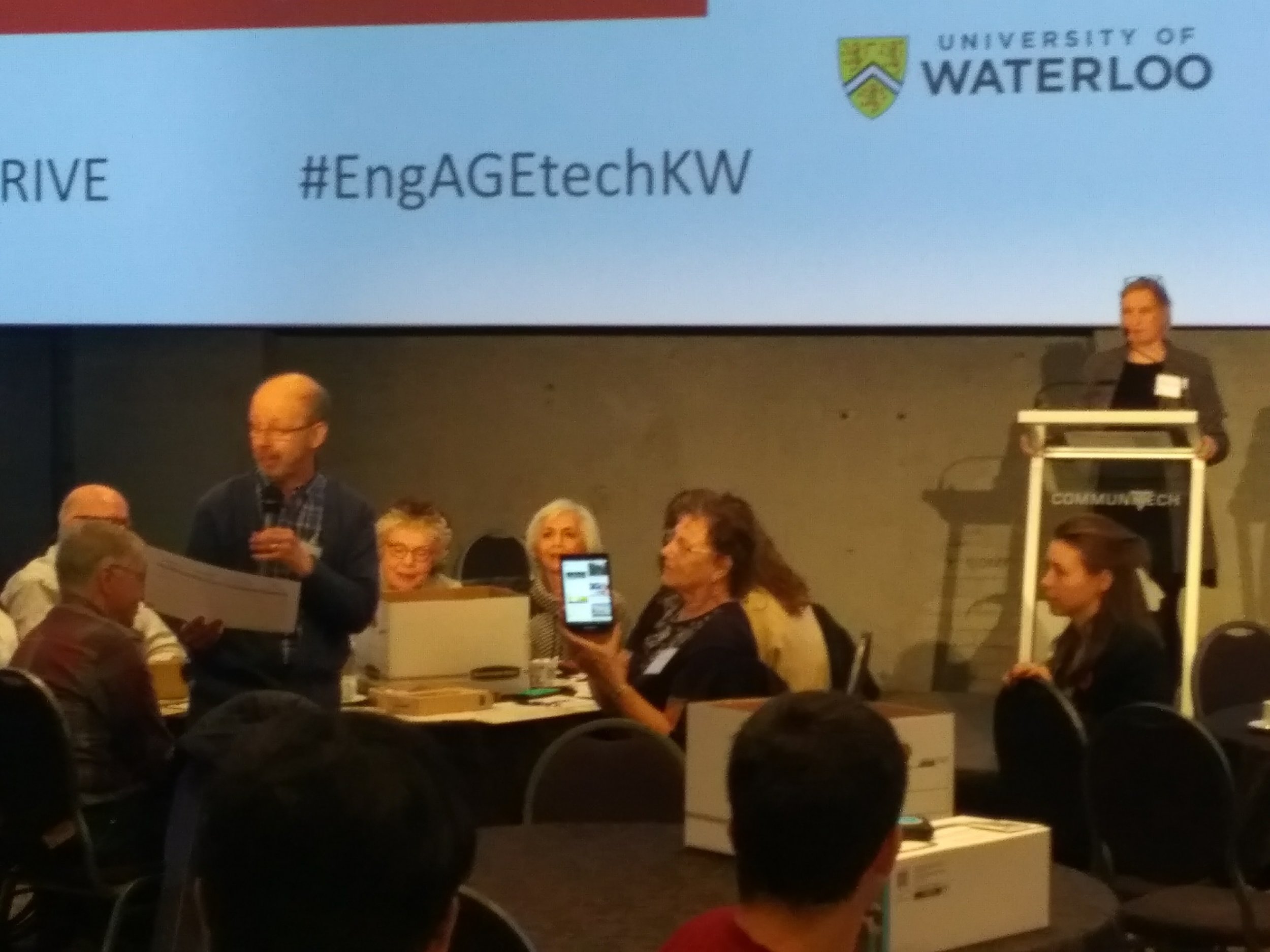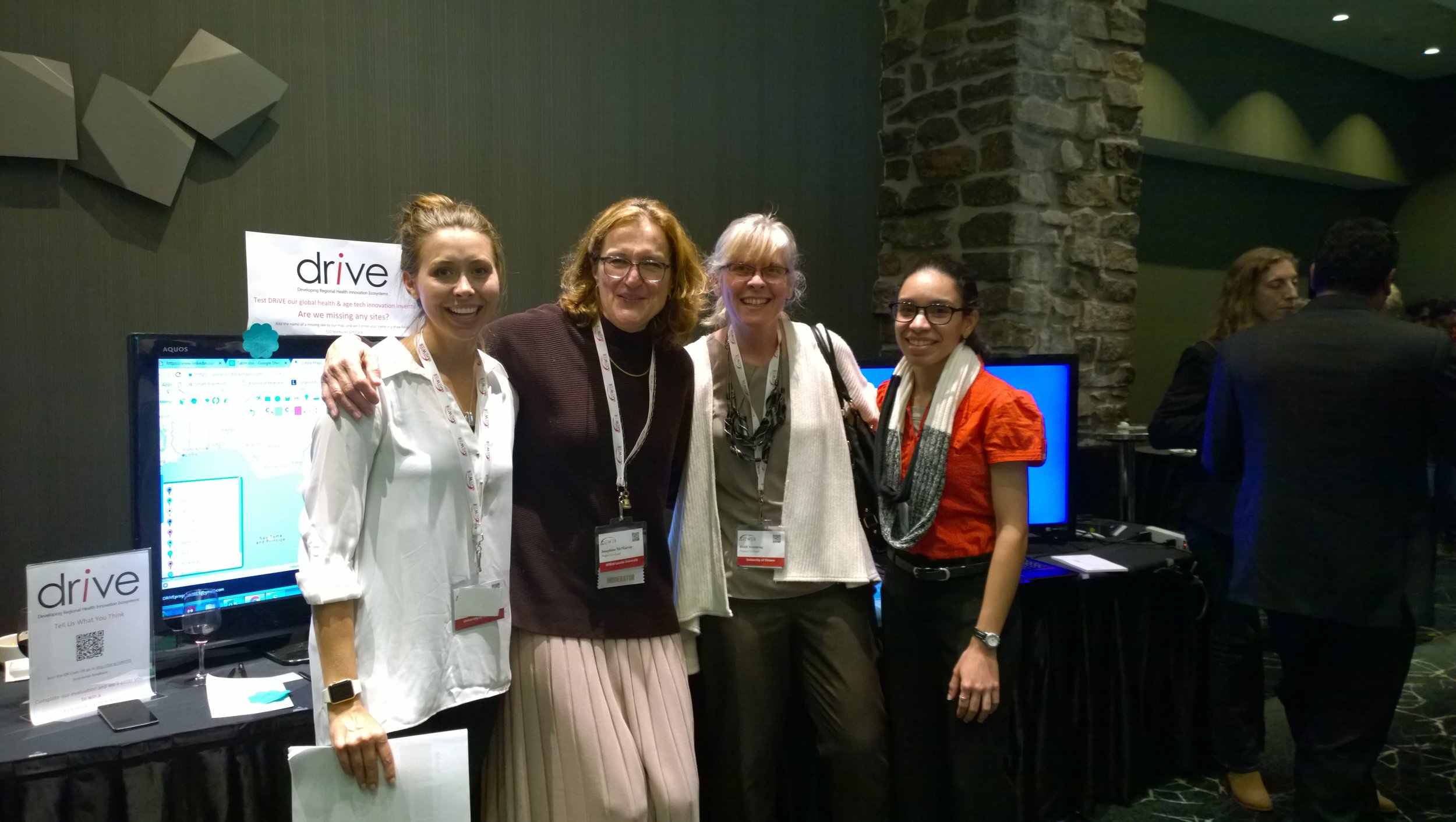Things got WEiRED on June 15th and 16th. At the invitation of the WEiRED (Women Entrepreneurs, Innovators, and Regional Ecosystem Development) research group, over 50 women representing an international consortium of researchers, government and industry representatives, start-up founders, and students met at Communitech to share the latest research on and discussion new areas of research that will advance women’s entrepreneurship and innovation. The research was supported by a SSHRC Connections grant entitled “From Exception to Rule: Advancing the Role of Women Innovators and Entrepreneurs in Regional Innovation Ecosystems”, as well as Wilfrid Laurier, AGE-WELL, the Lazaridis School, and Communitech.
The goal of the project was to understand how women entrepreneurs impact and are impacted by regional innovation ecosystems.
Dr. Josephine McMurray, DRiVE co-PI, welcomes attendees to symposium
Day one started with an inspiring welcome by the incoming president and Vice-Chancellor of Wilfrid Laurier University, Dr. Deborah MacLatchy. The morning theme “Women entrepreneurs & innovators: An international perspective” included international researchers to set the tone and spur discussion for a lively group activity (pictured below).
Samiyyah Somji, WEiRED student volunteer leads her small group’s discussion on insights and research questions
Dr. Heather McNeil, Post Doctoral Fellow with the DRiVE team, leads a group brainstorming activity
Building on the morning’s learnings, the afternoon theme, “Women entrepreneurs & innovators: A regional perspective” highlighted the importance of ecosystems for collaboration and growth in local clusters. Day one of the symposium ended with an opportunity for an exercise that allowed the group to come to consensus on which issues were most important.
After lively discussions over dinner with new friends, day two opened with an address from Catherine Fife, Member of Provincial Parliament for the riding of Kitchener-Waterloo. The theme for Day 2, “Women and Entrepreneurship from a sectoral perspective: health and agetech” generated some fervent discussion. Most participants were in agreement around the need for innovation in the health and aging sectors. They hear from experts in aging, practitioners running women’s entrepreneurship programs in incubators, and professional schools that encourage women and workers in gendered professions such as nursing.
Dr. Katherina Kuschel, Visiting Research Fellow, discusses topics from the morning’s session with AGE-WELL researcher Judith Sixsmith
Dr. Heidi Sviestrup, DRiVE co-PI, leads group consensus building activity
The organizing team is working on next steps, including future collaborations on grants and partnerships. DRiVE is grateful for all the support from partners as well as the student volunteers who worked to pull this amazing event together.
Check out #weiredproject #weired2017 #kwinnovation on Twitter for participants’ perspectives throughout the symposium.
